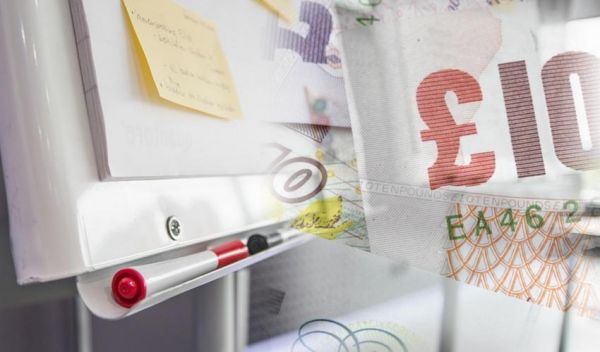

The crisis over public sector pay has been nothing if not divisive, but a new ‘split’ – that of the Government’s proposals to share public purse savings with teachers and civil servants as a means of resolving the dispute – is the latest separation plaguing the embittered row.
Just hours after the offer to split Education savings evenly between Government and the teachers was made by the States Employment Board (SEB), the National Education Union (NEU) became the first union to overwhelmingly reject the offer.
The Board anticipated that the review, carried out by a working group of senior union officials, the Department for Children Young People, Education & Skills and the government, will manage to save at least 1.6% of the annual teaching pay bill – which equates to £662,000 per year.

Pictured: The politician members of the States Employment Board put forward the latest offer proposing a 'gain-share' arrangement.
It was proposed that half of the amount would be evenly distributed to all teachers, but the offer wasn't well received at a teachers' meeting, with attendees indicating that it wasn't acceptable.
Since this meeting, however, the union has announced that subsequent talks with the SEB have made "rapid progress" - anticipating "the potential for a resolution to be reached on Friday." In the meantime, any notice of further strike action has been suspended.
Express takes a look at what this ‘gain-share’ arrangement may have meant for the 750 teachers who still haven’t settled their pay dispute with their employer.
In a bid to resolve the months-long impasse over public sector pay, the Government took this somewhat unusual tack of getting representatives from the public sector to take partial responsibility for cuts to their own departments in order to realise a better pay offer going forward.

Pictured: The teacher workforce comprising around 750 people still haven't settled their pay dispute with the employer.
Despite the hypotheticals of the latest proposals to ‘share’ savings equally between Government and the public sector staff who have not yet accepted a pay offer, the SEB said to teachers that as well as their bolted-on above-inflation rise in 2020, educators are “guaranteed” a further increase by this new agreement never before tested in Jersey.
But, it seems this ‘guarantee’ comes with a number of strings attached as the savings must first be identified by the steering group and signed off by the Employment Board before any increases are consolidated into teachers’ pay packets.
Although the suggested scheme could amount to just £37 extra a month for teachers who must carry a Department already complaining of chronic underfunding, questions about how many more “efficiencies” Education can take are being raised in the wake of this latest offer to aggrieved teaching professionals.
This so-called “collaborative” approach was positioned as a “win-win” deal for the public sector staff who are effectively being asked to make cuts to their own department equivalent to £74 per teacher, per month just so they can take home half of that… a year down the line.
Beleaguered by industrial action, the last ten months have seen public sector staff across government departments staged mass walk outs demanding an immediate and urgent response to the public pay crisis, but the SEB’s latest offer appears to defer above-inflation rises until 2020 – with the added promise of a small top up posed by the ‘gain-share’ agreement.

Pictured: The dispute has seen teachers walking out of schools and resorting to strike action.
The parameters of this arrangement – which has never been implemented before in Jersey, but, the Chief Minister says has been used in other jurisdictions – are not set in stone as they would be up for negotiation had the offer been accepted. However, how such an arrangement would work in practice is not yet clear.
The revised offer made to teachers suggests several areas which the working group may focus on to find savings under the banner of “educational reform” as well as hoping to “enable the rebuilding of trust with the profession and… enable benefits to be directed on a 50:50 proportion to teachers, to illustrate the value placed on them by CYPES [Children, Young People, Education & Skills Department], the employer and the wider Government.”
These suggestions appear to propose schemes which would require investment rather than cutting costs, including the development of “a comprehensive health and wellbeing programme” as well as acknowledging “the need to progress training and continuing professional development” and implementing new roles for an “Assistant Head Teacher role” and a “Higher Level Teaching Assistant.”
Civil servants have also been presented with a similar deal, but their offer from the SEB was far less detailed in terms of where the potential ‘savings’ could come from. They began balloting their members last week, but so far they haven’t responded to the proposal.
It is not clear either where these offers could leave civil servants working in the Education department. The teachers’ offer reads: “The development and promotion of a programme of joint working with all unions representing employees in Education – principally those representing teachers, head and deputy head teachers, but also Civil Service Staff Side representing civil servants directly involved in supporting the education of children and young people.
“This will be under a unified pay group, enabling strong and effective links to be sustained between all professionals in Education.”
If the offer is agreed by subsequent ballots by other unions, it isn’t clear whether these civil servants will benefit from both schemes or if the ‘gain-share’ arrangement will take effect across departments.
Comments
Comments on this story express the views of the commentator only, not Bailiwick Publishing. We are unable to guarantee the accuracy of any of those comments.